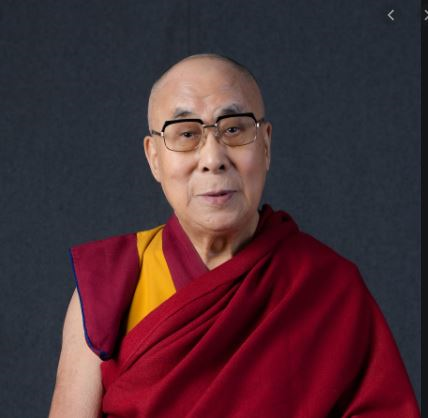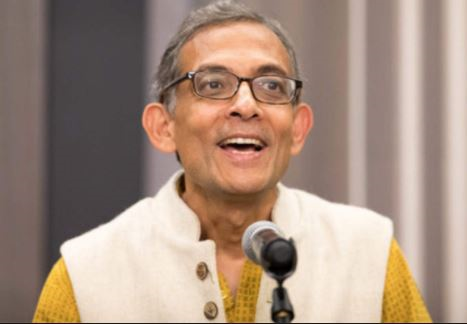Dalai Lama
 The 14th Dalai Lama was born in the Wood-Pig Year, 5th month, 5th day of the Tibetan Calendar, or 6 July 1935. Known as Gyalwa Rinpoche to the Tibetan people, he is the current Dalai Lama, the highest spiritual leader of Tibet and the retired political leader of Tibet. He is considered a living Bodhisattva; specifically, an emanation of Avalokitesvara. He is also the leader of the Gelug school, the newest school of Tibetan Buddhism, formally headed by the Ganden Tripa. The central government of Tibet, the Ganden Phodrang, invested the Dalai Lama with temporal duties until his exile in 1959. On April 29, 1959, the Dalai Lama established the independent Tibetan government in exile, the Central Tibetan Administration, in the north Indian hill station of Mussoorie, which then moved in May 1960 to Dharamsala, where he resides. He retired as political head in 2011 to make way for a democratic government.
The 14th Dalai Lama was born in the Wood-Pig Year, 5th month, 5th day of the Tibetan Calendar, or 6 July 1935. Known as Gyalwa Rinpoche to the Tibetan people, he is the current Dalai Lama, the highest spiritual leader of Tibet and the retired political leader of Tibet. He is considered a living Bodhisattva; specifically, an emanation of Avalokitesvara. He is also the leader of the Gelug school, the newest school of Tibetan Buddhism, formally headed by the Ganden Tripa. The central government of Tibet, the Ganden Phodrang, invested the Dalai Lama with temporal duties until his exile in 1959. On April 29, 1959, the Dalai Lama established the independent Tibetan government in exile, the Central Tibetan Administration, in the north Indian hill station of Mussoorie, which then moved in May 1960 to Dharamsala, where he resides. He retired as political head in 2011 to make way for a democratic government.
The 14th Dalai Lama was born in Taktser (Hongya in Chinese), in the east of Qinghai province (Amdo in Tibetan). He was selected as the tulku of the 13th Dalai Lama in 1937 and formally recognized as the 14th Dalai Lama in a public declaration near the town of Bumchen in 1939. As with the recognition process for the 13th Dalai Lama, a golden urn selection process was not used. His enthronement ceremony as the Dalai Lama was held in Lhasa on 22 February 1940 and he eventually assumed full temporal (political) duties on 17 November 1950, at the age of 15, after the People's Republic of China's occupation of Tibet. The Gelug school's government administered an area roughly corresponding to the Tibet Autonomous Region, just as the nascent PRC wished to assert control over it.
During the 1959 Tibetan uprising, the Dalai Lama escaped to India, where he currently lives in exile while remaining the most important spiritual leader of Tibet. The Dalai Lama advocates for the welfare of Tibetans while continuing to call for the Middle Way Approach to negotiations with China for the autonomy of Tibet and the protection of Tibetan culture, including for the religious rights of Tibetans.
The Dalai Lama also meets with other world leaders, religious leaders, philosphers and scientists, and travels worldwide giving Tibetan Buddhist teachings. His work includes focus on the environment, economics, women's rights, nonviolence, interfaith dialogue, physics, astronomy, Buddhism and science, cognitive neuroscience, reproductive health and sexuality.
Along with his teachings on Tibetan Mahayana and Vajrayana Buddhism, the Dalai Lama's Kalachakra teachings and initiations are international events.
He is the chief Patron of the Maha Bodhi Society of India, conferred upon him at the 2008 Annual General Meeting of the Maha Bodhi Society of India.
The Dalai Lama is a recipient of the Nobel Peace Prize awarded in 1989, and the US Congressional Gold Medal in 2006. Time magazine named the Dalai Lama one of the "Children of Mahatma Gandhi" and Gandhi's spiritual heir to nonviolence.
 Abhijeet Banerjee
Abhijeet Banerjee
Abhijit Vinayak Banerjee (born 21 February 1961) is an Indian-born American economist who is currently the Ford Foundation International Professor of Economics at Massachusetts Institute of Technology. Banerjee shared the 2019 Nobel Memorial Prize in Economic Sciences with Esther Duflo and Michael Kremer "for their experimental approach to alleviating global poverty". He and Esther Duflo, who are married, are the sixth married couple to jointly win a Nobel Prize.
Banerjee is a co-founder of Abdul Latif Jameel Poverty Action Lab (along with economists Esther Duflo and Sendhil Mullainathan). He is a research affiliate of Innovations for Poverty Action and a member of the Consortium on Financial Systems and Poverty. Banerjee was a president of the Bureau for the Research in the Economic Analysis of Development, a research associate of the National Bureau of Economic Research, a research fellow at the Centre for Economic Policy Research, an international research fellow of the Kiel Institute, fellow at the American Academy of Arts and Sciences, and a fellow at the Econometric Society. He also has been a Guggenheim Fellow and an Alfred P. Sloan Fellow. He is the co-author of Poor Economics. He also serves on the academic advisory board of Plaksha University, an upcoming science and technology university in India. His new book, co-authored with Esther Duflo, Good Economics for Hard Times, was released in October 2019 in India by Juggernaut Books. He was sent to Delhi's Tihar Jail for 10 days for participating in protests at Jawaharlal Nehru University in 1983.